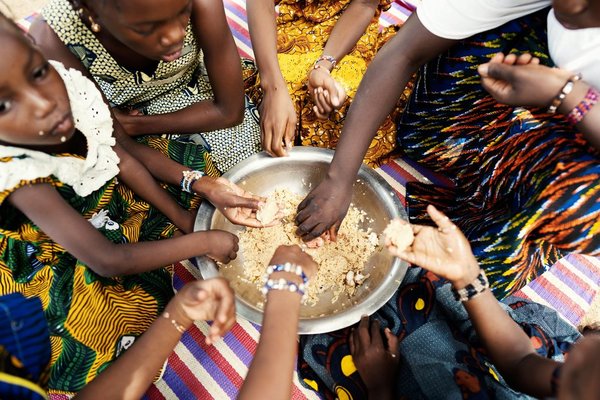- Share this article
- Subscribe to our newsletter
Commitments to fight malnutrition at N4G Summit
Government and private sector donors pledged more than USD 27 billion at the Tokyo Nutrition for Growth (N4G) Summit in early December 2021 to address the global malnutrition and hunger crisis. Despite malnutrition being the underlying cause of nearly half of all child deaths under five, less than one per cent of global foreign aid is currently spent on nutrition.
Even before COVID-19, the global burden of malnutrition had remained worryingly high, although progress was being made in reducing the more severe forms of malnutrition, including stunting and wasting in early childhood. Malnutrition triggered by COVID-19 could kill 283,000 more children aged under five years, leave 13.6 million more wasted and 3.6 million more stunted, and make 4.8 million more women anaemic over the next three years.
At the event, Japan committed over USD 2.8 billion to provide nutrition-related assistance globally. The European Union pledged USD 2.8 billion over a three-year period, the United States committed USD 11 billion over a 3-year period, and the African Development Bank committed USD 1.35 billion over a six-year period.
Countries commit to step up the fight against malnutrition
In addition to the donor’s pledge, countries with high burdens of malnutrition delivered pledges towards increased domestic programming, as well as promising stronger policies and programmes to reduce malnutrition rates. For example, Bangladesh, represented by Prime Minister Sheikh Hasina, committed to cut anaemia rates by a third, stunting among children by a fifth, and wasting among children by a quarter within the next five years.
The Government of Indonesia pledged to fight malnutrition, and specifically to accelerate efforts to reduce stunting nationwide. Resources will support maternal and child nutrition interventions, including promotion of infant and young child feeding, nutritional supplementation for adolescent girls and pregnant women, and nutrition care and support for children with severe malnutrition.
The nutrition financing gap
The 2015 Global Nutrition Investment Framework, led by the World Bank and Results for Development, identified a nutrition financing gap of more than USD 700 billion dollars over ten years to deliver evidence-based interventions that are largely provided through the health sector. While the Summit’s commitments represent a significant step forward, they are still nowhere near what is necessary to end malnutrition.
Renewed commitments by UN agencies
UN agencies also delivered renewed commitments at the Summit. By 2025, UNICEF aims to reach at least 500 million children, adolescents and women annually with malnutrition prevention programmes to counter stunting, wasting, micronutrient deficiencies, overweight and obesity. The World Health Organization (WHO) pledged to develop a Global Action Plan to prevent and manage anaemia in women and children and to accelerate progress towards reducing anaemia in women of reproductive age by 50 per cent by 2030. The World Food Programme committed to increasing the proportion of its programmes’ beneficiaries who consume healthy diets to 80 per cent in 2025.
Several civil society organisations and private sector companies on board
In addition, 44 civil society organisations from 26 countries delivered a range of financial and programmatic commitments, primarily aimed at reducing rates of undernutrition in vulnerable populations through improved nutritional care services, improved diets, and stronger social protection services. These stakeholders pledged to invest approximately one billion USD in priority interventions.
More than a dozen private sector companies made pledges at the event, including food companies promising to improve the nutritional quality of their products, contributing to more sustainable food systems, and improving the quality of their employees’ diets. Non-food businesses committed to supporting improved agricultural practices and the quality of their workforce’s diets by providing healthy and sustainable meals and joining relevant global alliances.
Next summit to be hosted by France
During the closing session of the Tokyo Summit, French Minister for Europe and Foreign Affairs, Jean-Yves Le Drian, delivered France’s commitment to host the next Nutrition for Growth Summit linked to the Paris Olympic Games in 2024. The next Summit will be an opportunity to review progress and accountability for pledges made at this year’s summit – and to deliver new commitments to combat malnutrition in the final five years of the Sustainable Development Goals.
(N4G/ile)
Visit the Nutrition for Growth website





Add a comment
Be the First to Comment